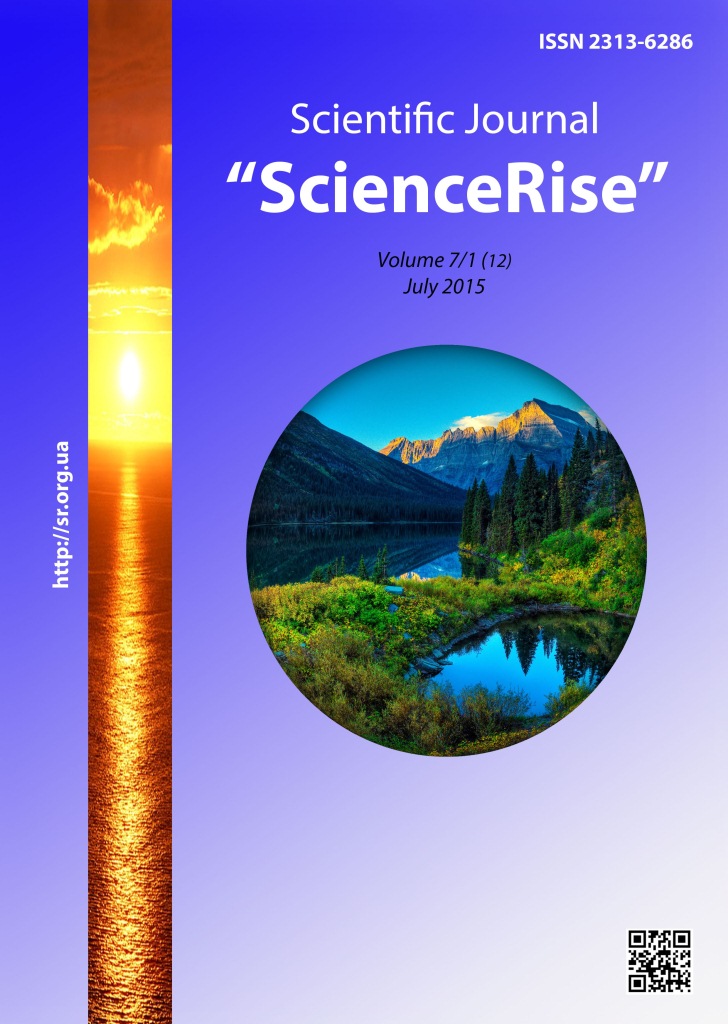The choice of indicators to assess the quality of educational services of the institution
DOI:
https://doi.org/10.15587/2313-8416.2015.47214Keywords:
quality, quality of education, quality of educational services, key indicators of educational services.Abstract
On the basis of well-known international and national systems of indicators that make it possible to assess the development of the education system, educational system identified indicators to assess the quality of educational services to secondary schools. In the article the author formulated the original definition of concepts such as quality, quality of education, educational service, quality of education services and indicators of education.References
(2002). Ukaz Prezydenta Ukrai'ny vid 17 kvitnja 2002 r. № 347/2002 “Pro Nacional'nu doktrynu rozvytku osvity”. Ukaz Prezydenta Ukrai'ny. – Available at: http://golovbukh.ua/regulations/2337/245648/
Dejkun, D. I., Pastovens'kyj, O. V. (2011). Metodychni rekomendacii' z optymizacii' merezhi zagal'noosvitnih navchal'nyh zakladiv u sil's'kyh rajonah: navchal'no- metodychnyj posibnyk, za red. O. A. Udoda. In-t Innovacijnyh tehnologij MONMS Ukrai'ny, 2.
Ljashenko, O. I. (2005). Jakist' osvity jak osnova funkcionuvannja j rozvytku suchasnyh system osvity. Pedagogika i psyhologija. Visnyk akademii' pedagogichnyh nauk Ukrai'ny : Naukovo-teoretychnyj ta informacijnyj zhurnal akademii' pedagogichnyh nauk Ukrai'ny, 1, 5–12.
Panasjuk, V. P. (2003). Shkola i kachestvo. Vybor budushhego. SPb. : KARO, 384.
Obolens'ka, T. Je. (2001). Marketyng osvitnih poslug: vitchyznjanyj i zarubizhnyj dosvid. Kyiv, 208.
Nikolajenko, S. (2007). Rejtyngovi systemy – skladovi nacional'nogo monitoryngu jakosti vyshhoi' osvity. shkola. Kyiv: Byblyoteka KNTЭU, 4, 3–14.
Kalenjuk, I. S. (2003). Ekonomika osvity: Navch. Kyiv: Znannja Ukrai'ny, 316.
Kadochnikov, S. M. (2010). Osobennosti vysshego obrazovanija kak jekonomicheskogo blaga i nekotorye prakticheskie sledstvija jetih osobennostej. Universitetskoe upravlenie: praktika i analiz. Gl. red. Kljuev A. K. Ekaterinburg, 2 (17), 48–49.
Ljashenko, O. I., Lukina, T. O., Vashhenko, L. S. (2011). Organizacijno-metodychne zabezpechennja monitoryngovyh doslidzhen' jakosti zagal'noi' seredn'oi' osvity. Kyiv: «Pedagogichna dumka», 174.
Andrushhenko, V. P. (2004). Filosofija social'noi' roboty v Ukrai'ni na rubezhi stolit'. Rozdumy pro osvitu. Kyiv: Znannja Ukrai'ny, 312–316.
Astahova, K. V. (2002). Transformacija vyshhoi' osvity vymagaje transformacii' upravlinnja vyshhoju shkoloju. Pedagogika i psyhologija. Pedagogika i psyhologija. Visnyk akademii' pedagogichnyh nauk Ukrai'ny : Naukovo-teoretychnyj ta informacijnyj zhurnal akademii' pedagogichnyh nauk Ukrai'ny, 3, 19–22.
Vil'na encyklopedija. Vikipedija. – Available at: http://uk.wikipedia.org/wiki
Djakiv, R. S., Bohan, A. V., Gorbal',V. M. et. al (2000).Encyklopedija biznesmena, ekonomista, menedzhera. Za red. Djakiva. Kyiv: Mizhnar. ekon. fundacija, 703.
(2012). Knowledge Assessment Methodology. Knowledge for Development. – Available at: http://www.worldbank.org/kam
Kremen', V. G. (2003). Vid "kioskovoi'" psyhologii' – do osvity protjagom zhyttja. Dzerkalo tyzhnja, 5, 14.
Lokshyna, O. I. (2003). Monitoryng jakosti osvity: svitovyj. Pedagogika i psyhologija. Visnyk akademii' pedagogichnyh nauk Ukrai'ny : Naukovo-teoretychnyj ta informacijnyj zhurnal akademii' pedagogichnyh nauk Ukrai'ny, 1, 108–117.
Kas'janova, O. M. (2010). Ekspertyza regional'noi' systemy osvity na zasadah stalogo rozvytku. Teorija ta metodyka upravlinnja osvitoju, 3. – Available at: http://tme.umo.edu.ua/docs/3/10kaspsd.pdf
Downloads
Published
Issue
Section
License
Copyright (c) 2015 Елена Егоровна Кулик

This work is licensed under a Creative Commons Attribution 4.0 International License.
Our journal abides by the Creative Commons CC BY copyright rights and permissions for open access journals.
Authors, who are published in this journal, agree to the following conditions:
1. The authors reserve the right to authorship of the work and pass the first publication right of this work to the journal under the terms of a Creative Commons CC BY, which allows others to freely distribute the published research with the obligatory reference to the authors of the original work and the first publication of the work in this journal.
2. The authors have the right to conclude separate supplement agreements that relate to non-exclusive work distribution in the form in which it has been published by the journal (for example, to upload the work to the online storage of the journal or publish it as part of a monograph), provided that the reference to the first publication of the work in this journal is included.

